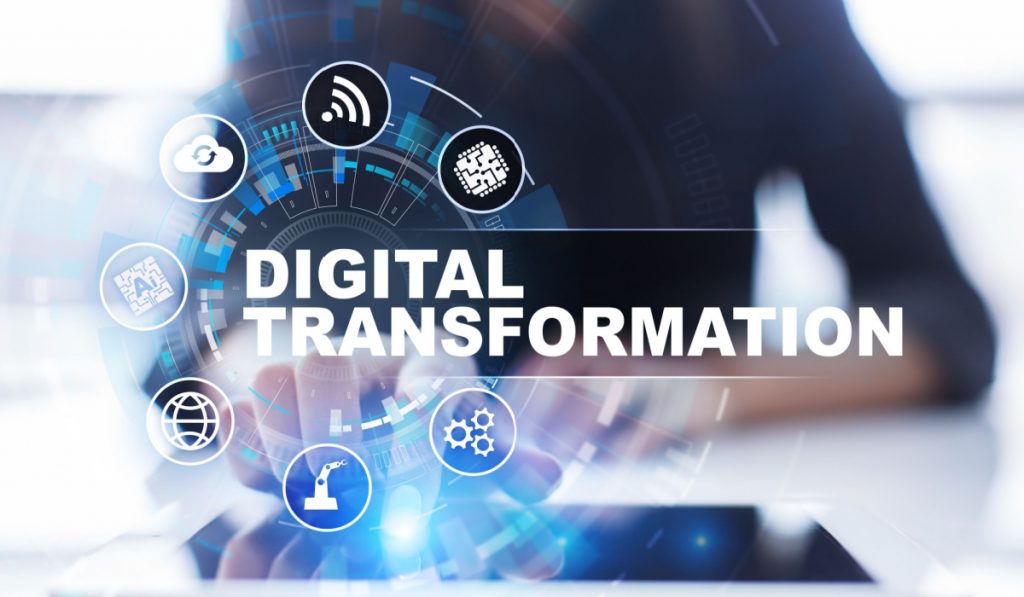
What is Digital Transformation?
Digital transformation integrates technology into all business areas. It changes how companies operate and deliver value. It also demands cultural shifts, continuous adaptation, and a customer-centric approach. In B2B Ecommerce, digital transformation accelerates processes, optimizes supply chains, and strengthens relationships with partners.
What is Digital Transformation Example?
A manufacturer that moves from manual inventory tracking to an AI-driven system undergoes digital transformation. Similarly, a wholesaler integrating automated order processing and predictive analytics transforms its operations. These examples show how businesses leverage technology to enhance efficiency.
Business Transformation Digital Strategies
B2B Ecommerce Digital Transformation involves strategic planning. Companies must analyze needs, set goals, and choose technology wisely. The right approach ensures long-term growth and scalability.
Digital Business Transformation Definition
Digital business transformation means using technology to improve operations, streamline workflows, and boost customer satisfaction. It is not just about tools; it requires an organizational shift toward efficiency, agility, and innovation.
Key Strategies for Successful Transformation
Cloud-Based Solutions
Cloud computing enhances scalability and flexibility. Businesses access data from anywhere, ensuring smooth operations and collaboration.
AI and Automation
Artificial intelligence and automation reduce manual tasks, improve accuracy, and optimize customer interactions. AI-driven chatbots, predictive analytics, and automated workflows enhance efficiency.
Data-Driven Decision Making
Companies must leverage data to make informed choices. Advanced analytics provide insights into market trends, customer behavior, and performance metrics.
Customer-Centric Approach
Personalization and seamless user experience drive customer satisfaction. Businesses must implement intuitive interfaces, omnichannel support, and self-service portals.
Cybersecurity Measures
Security is critical in digital transformation. Robust cybersecurity frameworks prevent data breaches, ensuring compliance and customer trust.
Choosing the Right Technology
Selecting the right technology determines transformation success. Businesses must assess needs, budget, and scalability before investing.
Key Technologies Driving B2B Digital Transformation
Enterprise Resource Planning (ERP) Systems
ERP solutions integrate business functions, improving efficiency and communication across departments.
Customer Relationship Management (CRM) Software
CRM platforms enhance customer engagement by streamlining interactions and improving sales processes.
Ecommerce Platforms
Advanced ecommerce platforms enable seamless transactions, real-time inventory tracking, and personalized experiences.
Big Data and Analytics
Data analytics tools help businesses make informed decisions by analyzing customer behavior and operational trends.
Internet of Things (IoT)
IoT enhances connectivity between devices, ensuring real-time monitoring, predictive maintenance, and process automation.
Transformation Projects Examples
Automated Supply Chain Management
A company implemented AI-powered supply chain solutions to optimize inventory and reduce operational costs.
Personalized Ecommerce Experience
A B2B marketplace used AI-driven recommendations to enhance user engagement and increase conversion rates.
Blockchain for Secure Transactions
A distributor adopted blockchain technology to ensure transparent, secure, and tamper-proof financial transactions.
B2B Digital Solutions for Growth
Businesses must implement the right digital solutions to scale and sustain growth.
Top B2B Digital Solutions
Cloud-Based Collaboration Tools
Remote teams need seamless collaboration. Cloud platforms like Microsoft 365 and Google Workspace enhance productivity.
AI-Powered Chatbots
Chatbots improve customer support, reduce response time, and enhance engagement.
Omnichannel Marketing Automation
Businesses must leverage email, social media, and paid ads for targeted marketing campaigns.
Subscription-Based Services
Offering SaaS solutions ensures consistent revenue streams and customer retention.
Predictive Analytics for Sales Forecasting
Data-driven insights help businesses anticipate demand and optimize inventory.
B2B Digital Transformation Case Study
A leading wholesale supplier faced declining sales due to outdated systems. They implemented an AI-driven CRM, automated order management, and personalized marketing campaigns. The result? A 40% increase in sales, improved customer satisfaction, and streamlined operations. This case highlights the power of digital transformation.
Conclusion
B2B Ecommerce Digital Transformation is not an option; it is a necessity. Businesses must embrace the right technology, optimize processes, and prioritize customer experience. Cloud computing, AI, automation, and data-driven strategies drive success. Companies that invest in transformation achieve sustained growth, efficiency, and competitive advantage.
